Anti-immigrant hashtag amplified by Turkish opposition party
İyi Party pushes “Syrians to Syria”
Anti-immigrant hashtag amplified by Turkish opposition party
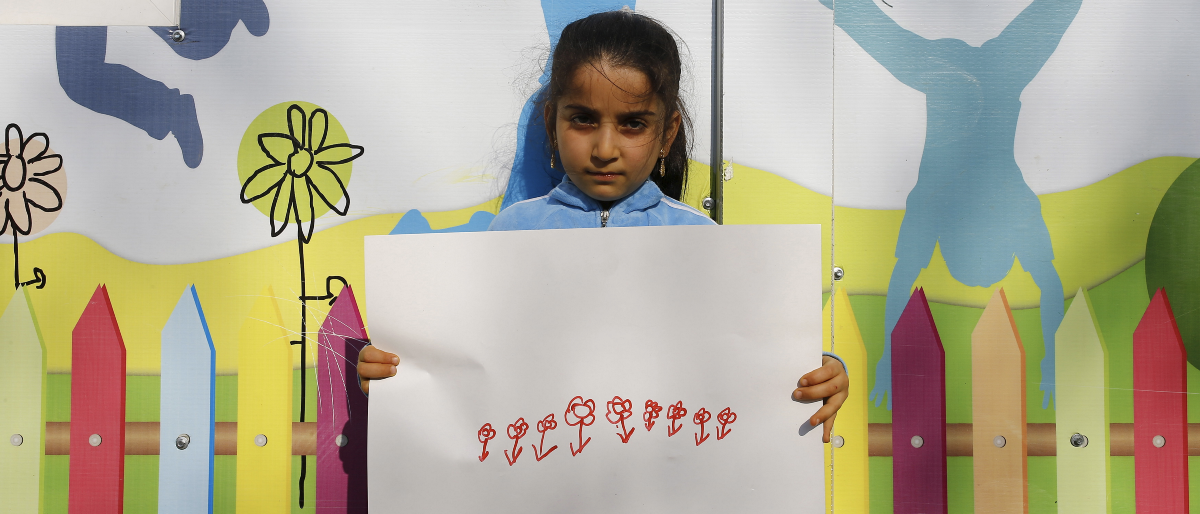
İyi Party pushes “Syrians to Syria” hashtag to demand Syrians refugees leave the country
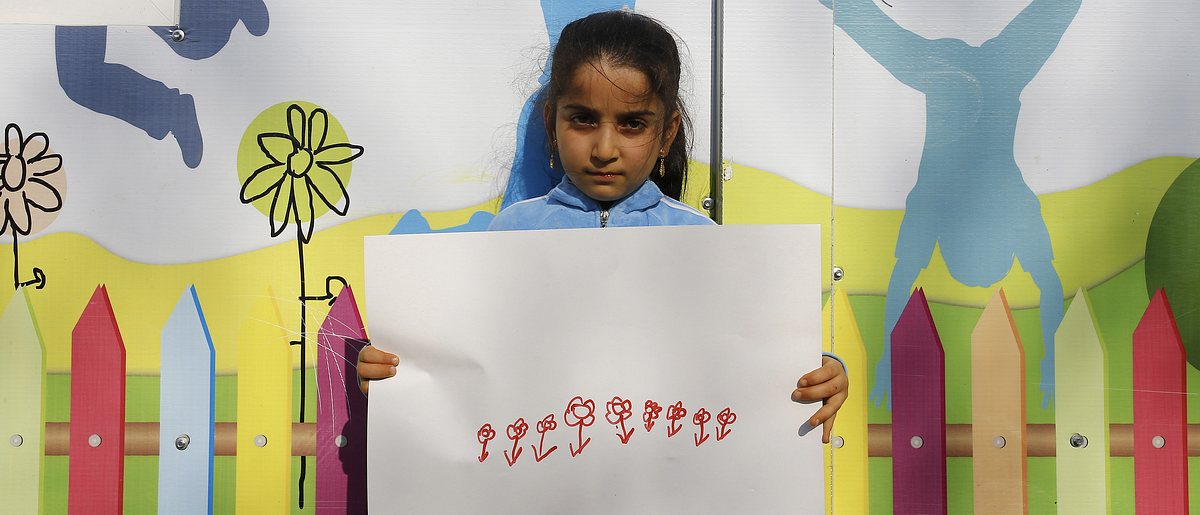
CORRECTION: An earlier version of this article incorrectly translated a tweet from İyi Party Istanbul Deputy Umit Ozdag. The original version of the article translated it as “The Syrians do not come to Turkey because they are bombed, they come to bomb Turkey.” The translation should have read, “The Syrians do not come to Turkey because they are bombed, they are bombed to come to Turkey.” We sincerely regret the error.
An anti-immigrant Twitter hashtag reached top trending status in Turkey on September 15, 2020 after being promoted by verified accounts from the center-right secularist İyi Party. The hashtag appears to have been promoted by suspicious Twitter accounts and a website with the same name of the hashtag, resulting in a series of peaks in popularity prior to reaching trending status.
The #SuriyelilerSuriyeye hashtag, which translates to “Syrians to Syria,” references the over 3.5 million Syrians living in Turkey. The hashtag went viral during a period of increasing violence against Syrians in Turkey, just days after the September 2020 murder of a 16-year-old Syrian refugee in Samsun and three months after the July 2020 murder of 15-year-old Syrian refugee Hamza Ajan in Bursa.
The İyi Party has deviated from Erdogan’s hardliner policy against Syria’s Assad, opting instead for normalization of relations. But party representatives have also employed racist rhetoric that has escalated during the COVID-19 pandemic, alleging that Syrians are spreading the illness, inundating the school system, taking up resources that would otherwise have been allocated to Turkish citizens, and “reproducing very quickly.”
As other analysts have noted, astroturfing Twitter trends is a fairly common tactic in Turkey. An August 2020 report from EPFL in Switzerland found that astroturfing attacks “have been used to promote at least 19,000 unique keywords in Turkey employing at least 108,000 users.” Although fake trends are purchased by a variety of clients, the Justice and Development Party (AKP) is the most frequent political party to employ this tactic, according to the report. The #SuriyelilerSuriyeye hashtag, however, represents an attempt to artificially instigate an anti-immigrant viewpoint promoted by an opposition party, indicating that this tactic is not limited to pro-AKP Twitter.
From political platform to social media campaign
In January 2019, the İyi Party launched its Suriyeliler Suriye’ye policy platform. According to one representative, the platform “aims to prevent the imperialist trap set against the Turkish nation and Syrians and to help Syrians return to their homeland.” A now-suspended Twitter account called @suriyelilers was created the same month, which was promted via the policy platform’s Facebook page. Later that same year in December, İyi Party President Meral Aksener organized a workshop titled Syrian Refugees’ Return to Their Country.

The #SuriyelilerSuriyeye hashtag was a product of İyi Party’s social media campaign, initially orchestrated by party representative Ali Işıner Hamşioğlu. In a March 2019 interview, Hamşioğlu stated that the hashtag did not constitute hate speech, and on the contrary, aimed “to prevent the formation of a social ground that will lead to hate speech.” The social media campaign consisted of a Facebook account, a Twitter account, and website, but the Twitter account was suspended shortly after the hashtag began trending on September 15.
The SuriyelilerSuriyeye website was still live at the time of writing, and consistently reposted news articles, İyi Party members’ conspiracy theories, and studies. Many of the website’s posts cited a survey conducted by from Umit Ozdag’s 21st Century Turkey Institute. The survey consisted of a GoogleWeb questionnaire available on their website, a methodology that would at best be considered biased relying on both the anonymous submission format and based solely on viewers that have come across their website. The survey allegedly found that 84% of participants believed that “Syrians should definitely return home.”
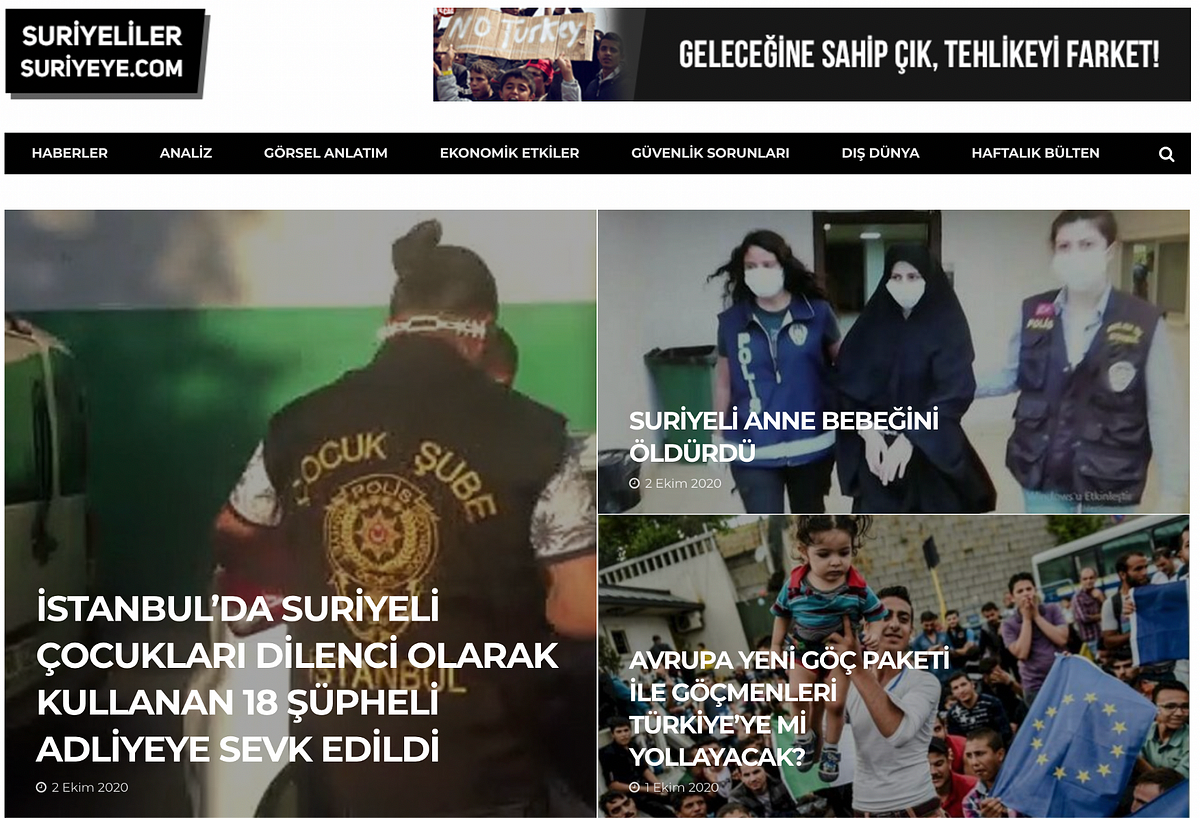

While the website generally refrains from producing original content, the rhetoric of articles it reposts are intended to incite fear and resentment. The website has a section devoted to highlighting crimes committed by Syrians or ISIS activity. The website also contains a section focusing on Syrians as either a financial burden or being privileged over Turks. A recent article posted in this section provided a platform for a racist tweet from İlay Aksoy, a founding İyi Party board member. The tweet includes a video showing Syrian children eating from a trash can. Aksoy remarked that she had posted a video of Turkish children from the same municipality and there was no response. The article is titled, “İYI Party Member Aksoy: If No Measure Is Taken, Turks Will Be The Workers And Syrians Will Be The Employers!” The website has also capitalized on depictions of Syrians as spreaders of COVID-19.
History of the hashtag
The #SuriyelilerSuriyeye hashtag first surfaced in February 2019 through a flurry of tweets from the @suriyelilers Twitter account and İyi Party representative Ümit Özdağ. From February 4–14, 2019, the hashtag received 2,559 mentions. The hashtag continued to pop up in small peaks over the course of two years with a series of bursts in activity in 2020 on April 8th, May 20th, June 10th, July 22th, August 5th, and December 30th.

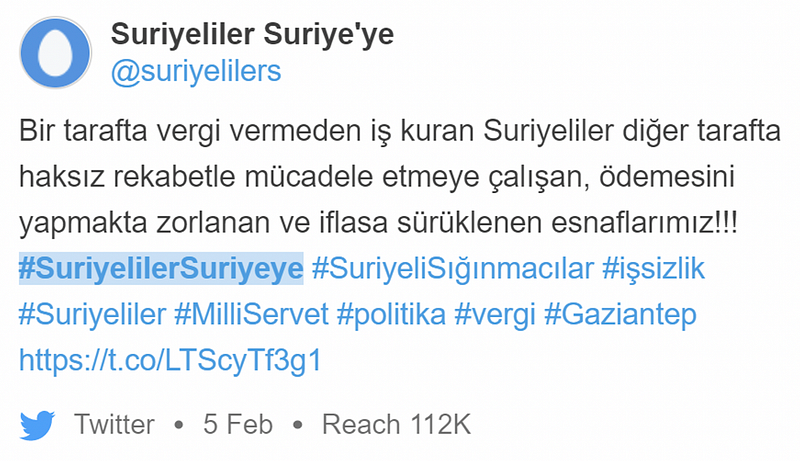
The top contributors to the hashtag during these peaks showed attributes consistent with manipulated Twitter traffic. On February 4, 2019, the hashtag was mentioned by several accounts sharing the name “Elittle” followed by a number. The accounts each retweeted the same tweets, and all of the “Elittle” accounts have since been suspended. Of the top 10 accounts with mentions for the small February peak, only two have not been suspended, including one with temporary restrictions. They posted an average of four tweets that day but attracted from 9,481 to 20,477 mentions.

In these early peaks, the hashtag was repeatedly deployed by a series of low-follower, high-activity accounts, but it was not until the hashtag was picked up by several İyi Party representatives and other verified accounts in that it gained traction and achieved top-trending status on Twitter. The suspicious activity from anonymous users early on — many of which have since been suspended — could indicate failed attempts to spur the hashtag to trend in prior months.
On September 15, 2020, İyi Party Istanbul Deputy Umit Ozdag tweeted out what became the most popular tweet using the #SuriyelilerSuriyeye hashtag. “The Syrians do not come to Turkey because they are bombed, they are bombed to come to Turkey,” it read. “To say No to the new artificial borders that imperialism is trying to create in the Middle East, #SyrianstoSyria.” Ozdag consistently tweets anti-Syrian content alongside his İyi Party peers, such as İyi party co-founder Seyit Yucel, who is also ranked among the top influencers of the hashtag.
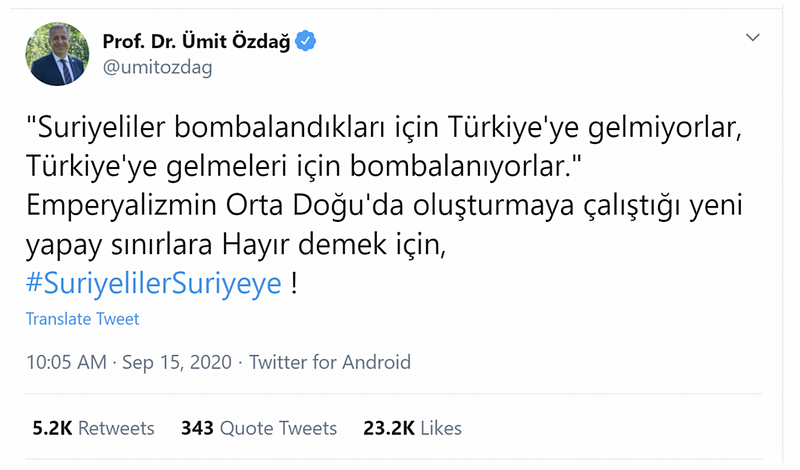
Several other prominent Turkish accounts tweeted the hashtag shortly afterwards, such as former AKP representative Pelin Günde, who posted tweets stating that Syrians were spreading COVID-19, among other claims.
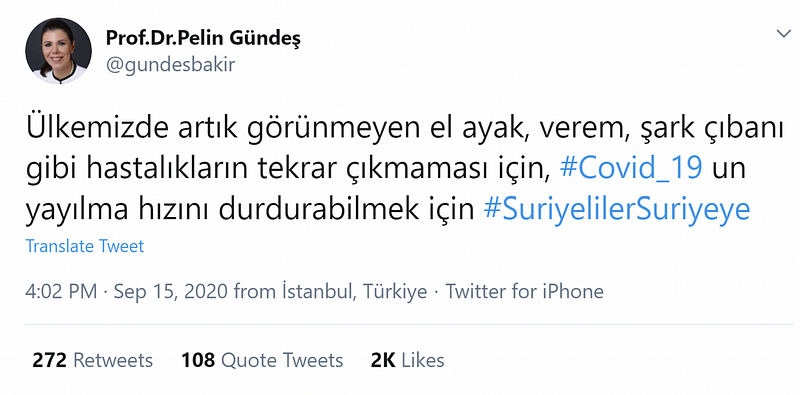
Top contributors
The hashtag’s top contributors to mentions tweeted at an extreme rate during the September 2020 peak. The top contributor during its peak was user AslmOuz2. This user produced 3,079 tweets from August 20, 2020 to September 23, 2020, with 134 tweets on September 15. Similarly, user Tc20096 tweeted 552 times on September 15 to their audience of zero followers. The third highest contributor of mentions showed extremely low levels of activity until tweeting 66 times on September 13, also to zero followers. The fourth tweeted an average of 123 tweets a day, appeared to be active at all periods of night and day, with the #suriyelilersuriyeye hashtag making up 76% of their hashtag use. The seventh top contributor was previously inactive from 2013 until tweeting once in March 2020 before skyrocketing to 342 times on May 11, 2020. Most of these profiles used anonymous profile pictures and names.

From January 7, 2019 to February 25 2020, the top 5–11 users by mentions retweeted the same posts containing #SuriyelilerSuriyeye exactly 31 times each. All the accounts have now been suspended — a trend similar to the February 2019 peak.
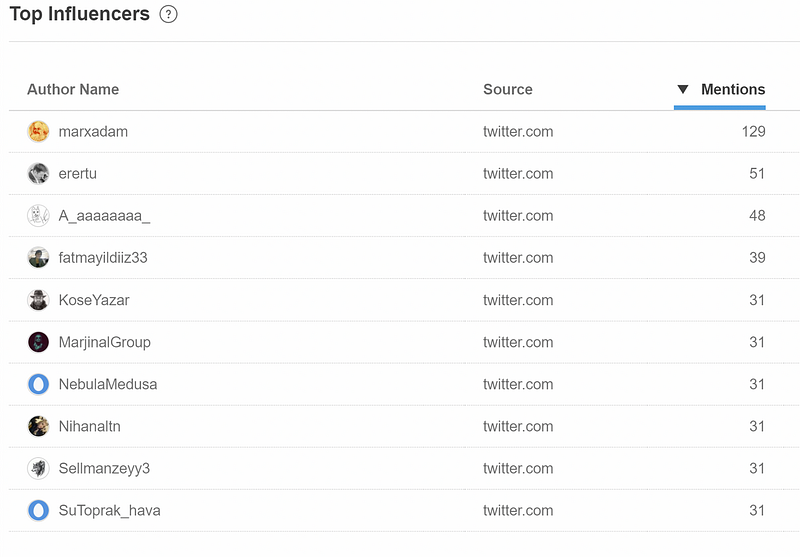
While we cannot confirm the use of bots or paid users to inflate the hashtag’s mentions, the hashtag exhibits many of the attributes of Twitter traffic manipulation. The hashtag’s earlier peaks had a high ratio of retweets to original tweets per user, and several of the top influencers were suspicious and anonymous accounts.
By September, the #SuriyelilerSuriyeye tweet campaign had been picked up by verified accounts that had the followers to finally tip it into the top trending status. The now-deleted @suriyelilers Twitter account and Umit Ozdag’s consistent tweets finally gained the traction they appear to have been attempting since early 2019 and attracted not only a rallying cry from party members, but a broader community as well.
On September 23, Activist Nurcan Baysal noted that as the hashtag began trending on Twitter, the funeral service of murdered Syrian refugee Eymen Hammami was taking place in the city of Samsun. The hashtag is indicative of the opposition’s increasingly xenophobic rhetoric as refugees in Syria face some of their greatest challenges yet in Turkey, with new economic hardships and health concerns exacerbated by the COVID-19 pandemic.
Follow along for more in-depth analysis from our #DigitalSherlocks.

